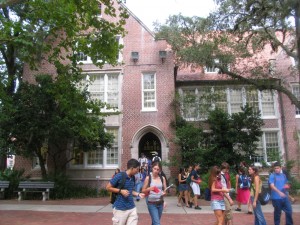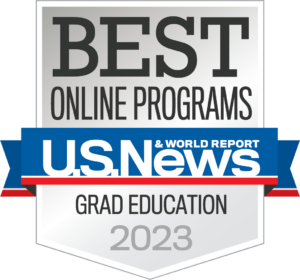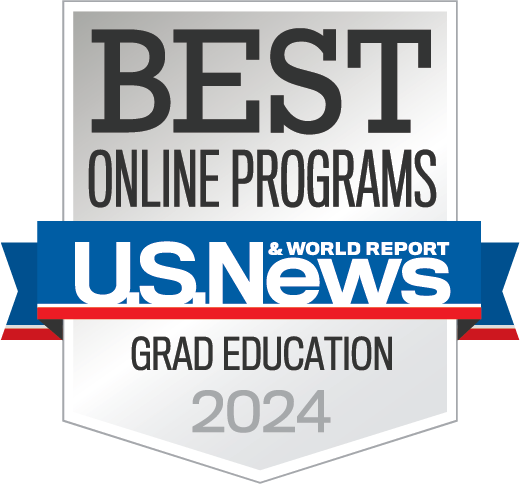Who We Are

The University of Florida College of Education is guided by a mission to prepare exemplary practitioners and scholars; to generate, use and disseminate knowledge about teaching, learning and human development; and to collaborate with others to solve critical educational and human problems in a diverse global community.
Transforming education and strengthening society since 1906, the college consistently ranks among the top 25 public education schools in the elite Association of American Universities. Currently, 3,442 students are enrolled across our 29 on-campus and 18 online degree programs and certificates. Foundational to our continued recognition as a top college of education in the country, is the domain expertise of our distinguished faculty and the unmatched desire for excellence by our students. Together, our faculty and students pursue vital, interdisciplinary research and novel scholarship that has and will continue to transform teaching and learning, improve education policy and advance leadership across education disciplines.
View our Impact Report for the latest facts and figures on our institution.
Accreditation
The college’s educator preparation programs have been continuously accredited since NCATE’s founding in 1954. In July 2013, the Council for the Accreditation of Educator Preparation (CAEP) replaced NCATE as the new accrediting body for educator preparation programs. The College received CAEP accreditation in 2017.
National Rankings
The UF College of Education is No. 1 in nation according to the 2023 U.S. News & World Report rankings of the Best Online Graduate Education Programs and has consistently garnered the top one or two spots since 2016.
UF remains the highest rated education college within the state in both online and on-campus graduate degree programs and is ranked No. 10 among the nation’s top public education schools for on-campus graduate degree programs. Four individual, campus-based academic programs also earned Top 25 rankings in 2022/2023:
No. 1 — Online Graduate Education program, overall
No. 5 — Special Education
No. 6 — Counseling & Counselor Education
No. 14 — Graduate Education overall, public education schools
No. 16 — Curriculum and Instruction
No. 22 — Elementary Teacher Education
(Source: U.S. News and World Report rankings of America’s Best Education Schools)

Key Initiatives
The College of Education remains dedicated to seeking solutions to education’s most pressing challenges through four key areas of impact — Early Learning, Educational Technology, Student Success and Leadership.
The Right Track with Early Learning
We are leading the way to a future where every child is prepared to enter school, giving children the opportunity to succeed through interdisciplinary collaboration.
Connecting Through Technology
We are integrating emerging technologies with proven learning techniques, using shared data, collaboration and learning analytics, to create the learning environments of the future.
Making Strides in Student Success
In areas of literacy, special education, counseling, social justice and beyond we are removing barriers and building bridges to increase opportunities for every learner.
Strengthening Leadership
We prepare leaders to analyze, develop and administer complex policies at all levels and to transform education through collaboration.
Schools & Program Areas
- School of Human Development and Organizational Studies in Education
- School of Special Education, School Psychology and Early Childhood Studies
- Special Education • School Psychology • Early Childhood (birth-age 5) • Early Childhood Education (age 3–grade 3)
- School of Teaching and Learning
- Curriculum, Teaching & Teacher Education • Education Sciences • Education Technology • Elementary Education • English Education • ESOL/Bilingual Education • Language Arts & Children’s Literature • Literacy & the Arts • Mathematics Education • Reading Education • Science & Environmental Education • SITE: Alternative Certification • Social Studies Education • Teacher Leadership for School Improvement • UFTeach
Centers, Institutes & Affiliates
Anita Zucker Center for Excellence in Early Childhood Studies
Established in 2010, the Anita Zucker Center for Excellence in Early Childhood Studies promotes and supports interdisciplinary research, teaching, model demonstration and outreach activities in early childhood studies.
CEEDAR Center (Collaboration for Effective Educator Development, Accountability and Reform)
The CEEDAR Center supports students with disabilities in achieving college- and career-ready standards by building the capacity of state personnel preparation systems to prepare teachers and leaders to implement evidence-based practices within multi-tiered systems of support.
Center for Disability Policy and Practice
Fosters policy development, school improvement, interdisciplinary research and professional development activities to improve educational outcomes for children with special needs.
Center for Excellence in Elementary Teacher Preparation
The Florida Department of Education awarded $2.7 million to the college in 2015 to create a dynamic research center where UF education faculty are vigorously transforming teacher preparation for elementary teachers so they can have a greater impact on student learning, especially among historically underachieving students.
Education Policy Research Center
The Education Policy Research Center has a mission to stimulate and support scholarly research on relevant and timely education policy issues and to disseminate the findings widely to students, educators, scholars and policy makers.
Institute for Higher Education
Established in 1968, the Institute of Higher Education conducts cutting-edge research and offers data-driven recommendations for higher education administrators and policymakers seeking to better understand the critical problems facing higher education at the local, state and national level.
Lastinger Center for Learning
The Lastinger Center for Learning, founded in 2002, works to create equitable educational systems where every child and educator, regardless of circumstances, experiences high-quality learning every day to support children’s achievement of critical milestones that are predictive of success in school and life.
P. K. Yonge Developmental Research School
Founded in 1934, P.K. Yonge Developmental Research School designs, tests and disseminates innovations in K-12 education and enacts this mission by serving a diverse community of students.
University of Florida Literacy Institute
The University of Florida Literacy Institute (UFLI–pronounced “you fly”) is an ongoing effort by UF faculty and students to improve literacy outcomes for students who struggle to learn to read and write.
FEAP: Florida Educator Accomplished Practices
Every teacher education candidate who completes a Student Teaching/Internship is evaluated by a University of Florida supervisor as well as the classroom mentor teacher. The Student Teaching Evaluation Form serves as the summative assessment documenting attainment of the Florida Educator Accomplished Practices (FEAP) and other professional standards.
Please visit Student Teaching Evaluation page to access important forms and resources.





